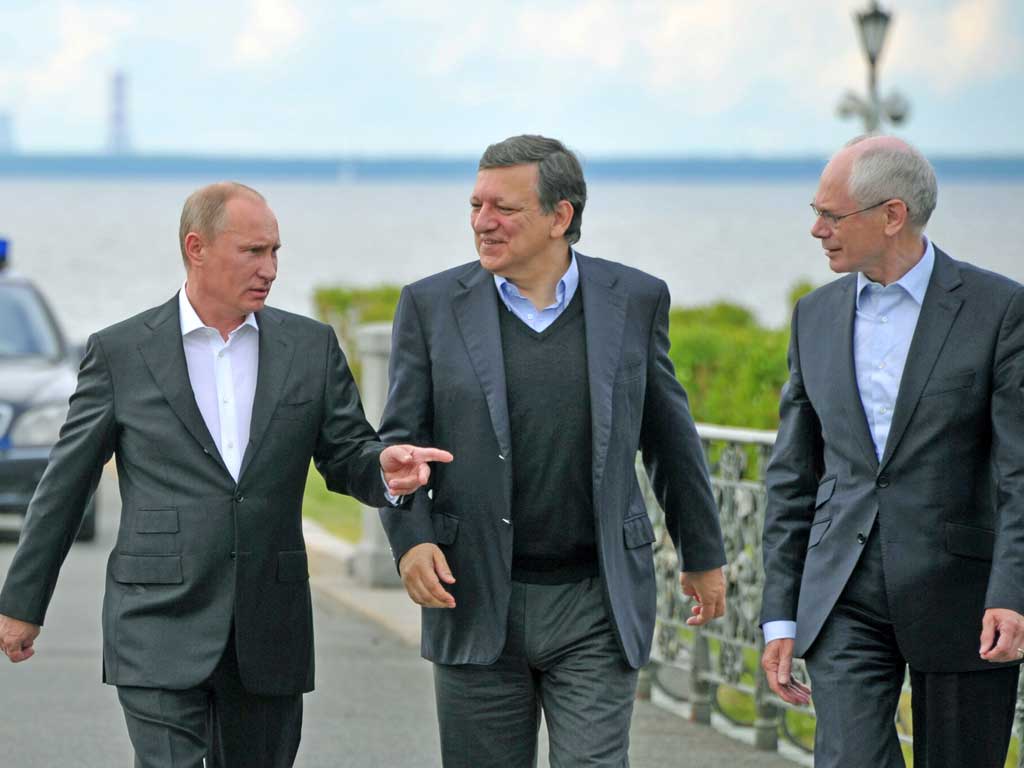As EU and Russia talk, Syria slides ever closer to civil war
Syrian rebels abandon Kofi Annan peace plan as Europe tries to pressure Putin into action

Your support helps us to tell the story
From reproductive rights to climate change to Big Tech, The Independent is on the ground when the story is developing. Whether it's investigating the financials of Elon Musk's pro-Trump PAC or producing our latest documentary, 'The A Word', which shines a light on the American women fighting for reproductive rights, we know how important it is to parse out the facts from the messaging.
At such a critical moment in US history, we need reporters on the ground. Your donation allows us to keep sending journalists to speak to both sides of the story.
The Independent is trusted by Americans across the entire political spectrum. And unlike many other quality news outlets, we choose not to lock Americans out of our reporting and analysis with paywalls. We believe quality journalism should be available to everyone, paid for by those who can afford it.
Your support makes all the difference.Evidence of an escalation in the bloody conflict engulfing Syria gave added urgency to talks yesterday between the EU and Russia – a key ally of the Syrian regime of Bashar al-Assad.
In an upsurge in fighting, Syrian insurgents claim to have killed at least 80 government troops in the north of the country at the weekend as an international stalemate persists over new measures directed against the Syrian government. The Syrian state news agency confirmed the burial of 30 soldiers, giving credibility to the account of increasing rebel attacks particularly around the northern city of Idlib, which is a centre of insurgent activity.
The Free Syrian Army (FSA) said yesterday that it would no longer abide by the UN-Arab League envoy Kofi Annan's six-point peace plan because President Assad had failed to observe their Friday deadline to implement the ceasefire. "We have decided to end our commitment to this [ceasefire]," said Free Syrian Army spokesman Major Sami al-Kurdi. "We have resumed our attacks but we are doing defensive attacks, which means we are only attacking checkpoints in the cities."
Speaking in Jeddah in Saudi Arabia yesterday, the UN Secretary-General, Ban Ki-moon, said the Annan plan remained central to resolving the Syrian conflict. He urged Syria's President Assad to stop the violence and start a political dialogue with his enemies.
Russia and China have continued to block harsher measures against Syria by the UN Security Council that might open the way to foreign military intervention. At a summit in St Petersburg with EU officials, including the European Council President, Herman Van Rompuy, and the European Commission President, Jose Manuel Barroso, President Vladimir Putin has reiterated that the rebels are responsible for much of the violence, criticising sanctions and saying a political settlement could not be imposed from outside.
On the ground in Damascus, UN officials say that unless the violence is reduced then political dialogue has no chance of getting off the ground. The Syrian government has failed to apply terms of the peace plan, which was meant to come into force on 12 April. But the UN monitoring group in Damascus says that the FSA and other armed rebel groups have stepped up their armed attacks over the past seven weeks, while the government had reduced its offensive operations.
The Houla massacre on 25 May of more than 100 Sunni villagers led to outrage inside and outside Syria. But the atrocity has so far failed to produce a radical change in the balance of power in Syria. President Assad has denied any involvement of the army in the massacre, though he has not spoken about the suspected role of pro-government Alawite militiamen.
China's most important newspaper, the People's Daily, warned yesterday any Western-backed military intervention would create even bloodier chaos and abandoning the Annan plan could push Syria into the "abyss".
The Syrian government, meanwhile, continues to limit the access of foreign journalists by rationing visas, which has led to the rebel groups largely controlling the flow of information about events on the ground in Syria.
The London-based Syrian Observatory for Human Rights, an anti-government organisation, says it has confirmed the names of 80 dead soldiers with local doctors alleging they were killed when four to six checkpoints were overrun by rebels near Idlib.
Conflict opinions: how others see it
United Nations
The ceasefire negotiated by the UN-Arab League envoy, Kofi Annan, is the only deal with international backing but has proved ineffective so far.
United States
The US has maintained that intervention in Syria should be via the UN, as it seeks to win over opposition from Russia and China.
Russia
Courting anger by still shipping arms to the Assad regime, Russia is unwilling to allow the West's military to help to secure regime change in the same way as it did in Libya last year.
China
The official state newspaper warned yesterday that "external forces are not qualified to meddle", arguing that Annan's peace plan is the only way to prevent an "abyss".
European Union
European nations have enforced strict embargoes on Syria and have called on Russia to adopt a tougher line.
Join our commenting forum
Join thought-provoking conversations, follow other Independent readers and see their replies
Comments